
John Hershey
University of California, Davis
USA
EMBL Conference
Registered participants will receive an email with access to the virtual conference platform on Monday 30 August.
EMBL is committed to sharing research advances and sustaining scientific interaction throughout the coronavirus pandemic. We are delighted to announce that this conference is going virtual and invite you to join us online.
The regulation of mRNA translation is a process required to maintain cell homeostasis, and its malfunction can lead to disease. In recent years, advances in high-throughput and microscopy methods have revealed findings that challenge hitherto established dogmas, such as extensive translation in “untranslated” regions of a transcript, pervasive initiation from non-AUG codons, heterogeneity and specialization of the ribosome or specialized roles for ‘general’ translation factors. The influence of epitranscriptomics and physical transitions in translation, or the molecular mechanisms underlying ribosome quality control are just examples where rapid progress is impacting our view of translation.
It is also now clear that the mRNA is covered with RNA binding proteins (RBPs) that control its fate, some of which have dual functions as enzymes, revealing connections with metabolism that we still need to understand. Thus, translation cannot be seen anymore as an isolated process, but as one highly connected with other steps of gene expression and finely dependent on cellular context. Advance on these aspects will be featured, as well as the role of translation regulation in diseases as diverse as cancer, metabolic or neurological disorders.
This conference is partnered with Cold Spring Harbor Laboratory (CSHL).

University of California, Davis
USA
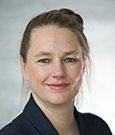
ETH Zurich
Switzerland

EMBL Heidelberg
Germany
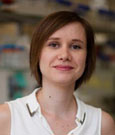
Max Delbrück Center for Molecular Medicine
Germany
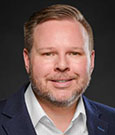
Johns Hopkins School of Medicine
USA

University of Lausanne
Switzerland
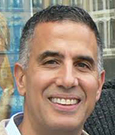
Stanford University School of Medicine
USA

University of Alabama at Birmingham School of Medicin
USA

University of Cambridge
UK
Additional speakers will be selected from abstracts.
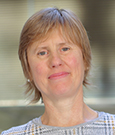
Centre for Genomic Regulation (CRG)
Spain

EMBL Heidelberg
Germany
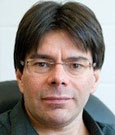
McGill University
Canada
Got something to say? Tweet it! #EMBLProtein
To find out the equivalent time zone in your location, enter Berlin, the programme time and date along with your city into the Time Zone Converter.
| Time | Speaker |
|---|---|
| 14:00 – 14:10 | Opening remarks by Fátima Gebauer AVAILABLE ON DEMAND AFTER LIVE STREAM |
| Virtual Session 1: RNP Complexes Session Chair: Marina Chekulaeva – Max Delbrück Center for Molecular Medicine, Germany | |
| 14:10 – 14:20 | Introduction by Session Chair |
| 14:20 – 14:45 | RNA localisation and local translation in neurons Marina Chekulaeva – Max Delbrück Center for Molecular Medicine, Germany AVAILABLE ON DEMAND AFTER LIVE STREAM |
| 14:45 – 15:00 | Coupling of transcription with ribosome assembly and translation in real-time Olivier Duss – EMBL Heidelberg, Germany AVAILABLE ON DEMAND AFTER LIVE STREAM |
| 15:00 – 15:15 | Revealing the host antiviral protein ZAP-S as an inhibitor of SARS-CoV-2 programmed ribosomal frameshifting Neva Caliskan – Helmholtz Institute for RNA-based Infection Research, Germany AVAILABLE ON DEMAND AFTER LIVE STREAM |
| 15:15 – 15:20 | Transition (technical setup and switch to the next session) |
| 15:20 – 15:30 | Break |
| 15:30 – 15:45 | An RNA binding switch drives ribosome biogenesis and tumourigenesis downstream of oncogenic KRAS Faraz Mardakheh – Barts Cancer Institute, UK AVAILABLE ON DEMAND AFTER LIVE STREAM |
| 15:45 – 16:00 | Aminoacyl tRNA synthetases utilize tRNA-related features on mRNAs to specifically bind and regulate their translation Yoav Arava – Technion – Israel Institute of Technology AVAILABLE ON DEMAND AFTER LIVE STREAM |
| 16:00 – 16:15 | Pseudouridine-modified tRNA fragments repress malignant protein synthesis and impact leukemogenesis Sowndarya Muthukumar – Lund University, Sweden AVAILABLE ON DEMAND AFTER LIVE STREAM |
| 16:15 – 16:30 | RGG-motif protein Sbp1 is required for Processing body (P-body) disassembly Raju Roy – Indian Institute of Science, India AVAILABLE ON DEMAND AFTER LIVE STREAM |
| 16:30 – 16:35 | Transition (technical setup and switch to the next session) |
| 16:35 – 16:45 | Break |
| 16:45 – 17:10 | Meet the speakers of Session 1: Marina Chekulaeva, Olivier Duss, Neva Caliskan, Faraz Mardakheh, Yoav Arava, Sowndarya Muthukumar, Raju Roy |
| 17:10 – 17:15 | Break |
| 17:15 – 17:45 | Roundtable Discussion (with pre-recorded talk presenters) moderated by session chair: Aindrila Chatterjee – EMBL Heidelberg, Germany Andrea Graziadei – Technical University of Berlin, Germany Wenqian Hu – Mayo Clinic, USA Rainer Nikolay – Charité – University Medicine Berlin, Germany Diana Silvia Marina Ottoz – Columbia University, USA AVAILABLE ON DEMAND AFTER LIVE STREAM |
| 17:45 – 18:15 | Social break with networking opportunity |
| 18:15 – 19:00 | Keynote lecture Getting ready for translation – ribosome synthesis in human cells Ulrike Kutay – ETH Zurich, Switzerland |
| 19:00 – 19:45 | Keynote lecture Visualizing cellular translation landscapes at atomic detail Julia Mahamid – EMBL Heidelberg, Germany |
| 19:45 – 19:55 | Break |
| 19:55 – 20:50 | Keynote lecture The History of Studies of Protein Synthesis and its Regulation John Hershey – University of California, Davis USA AVAILABLE ON DEMAND AFTER LIVE STREAM |
| 20:50 – 21:20 | Meet the Keynote Speakers: Ulrike Kutay, Julia Mahamid and John Hershey |
| 21:20 – 22:35 | Virtual Poster Session 1 Topics: RNP complexes and Translation Initiation (meet the poster presenters: live chats and video calls) |
| 22:35 | End of day 1 |
Digital posters, recordings and discussion channels will be available for registered participants throughout the whole virtual conference (as well as 1 week before and 2 weeks after)
| Time | Speaker |
|---|---|
| Virtual Session 2: Metabolism and Disease Session Chair: Anne Willis – University of Cambridge, UK | |
| 14:00 – 14:10 | Introduction by Session Chair |
| 14:10 – 14:35 | Aberrant mRNA translation drives metabolic output to increase cell growth in Malignant Mesothelioma Anne Willis – University of Cambridge, UK AVAILABLE ON DEMAND AFTER LIVE STREAM |
| 14:35 – 14:50 | Dynamic m6A mRNA methylation directs translational control of TXNIP, instigates abdominal aortic aneurysm formation in Apoe-/- mice Haingo Hantelys – Georgia State University, USA AVAILABLE ON DEMAND AFTER LIVE STREAM |
| 14:50 – 15:05 | Acetylation-activated RNA binding of Enolase 1 regulates Glycolysis and Embryonic Stem Cell Differentiation Ina Huppertz – EMBL Heidelberg, Germany AVAILABLE ON DEMAND AFTER LIVE STREAM |
| 15:05 – 15:10 | Transition (technical setup and switch to the next session) |
| 15:10 – 15:20 | Break |
| 15:20 – 15:35 | Investigating the roles of 4E-BP1 in breast cancer metastasis Predrag Jovanovic – Lady Davis Institute at the Jewish General Hospital, Canada AVAILABLE ON DEMAND AFTER LIVE STREAM |
| 15:35 – 15:50 | Rpl24Bst mutation suppresses colorectal cancer by promoting eEF2 phosphorylation via eEF2K John Knight – CRUK Beatson Institute, UK AVAILABLE ON DEMAND AFTER LIVE STREAM |
| 15:50 – 16:05 | Lung cancer cells require dihydrouridine synthase 2 to sustain levels of tRNACys and production of cysteine-rich proteins Austin Draycott – Yale University, USA AVAILABLE ON DEMAND AFTER LIVE STREAM |
| 16:05 – 16:20 | Ribosome collisions fuel a vicious cycle of proteotoxicity in Huntington’s Disease Ranen Aviner – Stanford University, USA AVAILABLE ON DEMAND AFTER LIVE STREAM |
| 16:20 – 16:25 | Transition (technical setup and switch to the next session) |
| 16:25 – 16:35 | Break |
| 16:35 – 16:50 | RNA translation regulates intestinal stem cell identity via Zaka activation Joana Silva – Netherlands Cancer Institute, The Netherlands AVAILABLE ON DEMAND AFTER LIVE STREAM |
| 16:50 – 17:05 | A functional analysis of mutations in DAZL identified in infertile patients Nicola Gray – University of Edinburgh, UK AVAILABLE ON DEMAND AFTER LIVE STREAM |
| 17:05 – 17:35 | Meet the speakers of Session 2: Anne Willis, Haingo Hantelys, Ina Huppertz, Predrag Jovanovic, John Knight, Austin Draycott, Ranen Aviner, Joana Silva, Nicola Gray |
| 17:35 – 17:45 | Break |
| 17:45 – 18:15 | Roundtable Discussion (with pre-recorded talk presenters) moderated by session chair: Anton Komar – Cleveland State University, USA Antje Ostareck-Lederer – University Hospital RWTH Aachen, Germany Erin Ritchie – The Center for Plant Molecular Biology (ZMBP), Germany Mayuresh Sarangdhar – Bern University Hospital, Switzerland Peter Todd – University of Michigan, USA AVAILABLE ON DEMAND AFTER LIVE STREAM |
| 18:15 – 18:45 | Social break with networking opportunity |
| Virtual Session 3: Interconnections and Turnover Session Chair: Jeff Coller – Johns Hopkins School of Medicine, USA | |
| 18:45 – 18:55 | Introduction by Session Chair |
| 18:55 – 19:20 | Insights into the interconnections between mRNA translation and mRNA stability Jeff Coller – Johns Hopkins School of Medicine, USA AVAILABLE ON DEMAND AFTER LIVE STREAM |
| 19:20 – 19:35 | An alternative UPF1 isoform drives conditional remodeling of nonsense-mediated mRNA decay Sarah Fritz – National Institutes of Health, National Heart, Lung, and Blood Institute, USA AVAILABLE ON DEMAND AFTER LIVE STREAM |
| 19:35 – 19:50 | Cell-specific control of gene expression through interactions of ARE-binding proteins and microRNAs Courtney Jungers – Washington University in St. Louis, USA AVAILABLE ON DEMAND AFTER LIVE STREAM |
| 19:50 – 19:55 | Transition (technical setup and switch to the next session) |
| 19:55 – 20:05 | Break |
| 20:05 – 20:20 | Human SMG6 interacts with the 80S ribosome via its unstructured N-terminal domain Nina Kläy – University of Bern, Switzerland AVAILABLE ON DEMAND AFTER LIVE STREAM |
| 20:20 – 20:35 | Timed global reorganization of protein synthesis during neocortex neurogenesis at single-codon resolution Matthew Kraushar – Max Planck Institute for Molecular Genetics, Germany AVAILABLE ON DEMAND AFTER LIVE STREAM |
| 20:35 – 20:50 | Unrecycled 40S-initiated mRNA decay couples translation and piRNA production Xin Li – University of Rochester, USA AVAILABLE ON DEMAND AFTER LIVE STREAM |
| 20:50 – 21:05 | Molecular mechanisms of EDF1-mediated JUN signaling in response to ribotoxic stress Niladri Sinha – Johns Hopkins Medical Institute, USA AVAILABLE ON DEMAND AFTER LIVE STREAM |
| 21:05 – 21:10 | Transition (technical setup and switch to the next session) |
| 21:10 – 21:20 | Break |
| 21:20 – 21:45 | Meet the speakers of Session 3: Jeff Coller, Sarah Fritz, Courtney Jungers, Nina Kläy, Matthew Kraushar, Xin Li, Niladri Sinha |
| 21:45 – 21:50 | Break |
| 21:50 – 22:20 | Roundtable Discussion (with pre-recorded talk presenters) moderated by session chair: Hagit Bar-Yosef – Technion, Israel Institute of Technology, Israel Susanne Huch – Karolinska Institutet, Sweden Tatsuaki Kurata – Lund University, Sweden Shetty Sunil – University of Basel, Switzerland David Young – National Institute of Diabetes and Digestive and Kidney Diseases, USA AVAILABLE ON DEMAND AFTER LIVE STREAM |
| 22:20 | End of day 2 |
Digital posters, recordings and discussion channels will be available for registered participants throughout the whole virtual conference (as well as 1 week before and 2 weeks after)
| Time | Speaker |
|---|---|
| Virtual Session 4: Translation Initiation Session Chair: Sunnie R. Thompson – University of Alabama at Birmingham School of Medicine, USA | |
| 14:00 – 14:10 | Introduction by Session Chair |
| 14:10 – 14:35 | The role of eS25 in cellular homeostasis and 40S binding by internal ribosome entry sites Sunnie R. Thompson – University of Alabama at Birmingham School of Medicine, USA AVAILABLE ON DEMAND AFTER LIVE STREAM |
| 14:35 – 14:50 | Single-molecule dynamics of early eukaryotic translation initiation Seán O’Leary – University of California Riverside, USA AVAILABLE ON DEMAND AFTER LIVE STREAM |
| 14:50 – 15:05 | eIF1-eIF4G1 inhibitors uncover alternative path of translation activation of stress-response genes via enhanced ribosome loading and 5’ UTR translation Urmila Sehrawat – Weizmann Institute of Science, Israel AVAILABLE ON DEMAND AFTER LIVE STREAM |
| 15:05 – 15:10 | Transition (technical setup and switch to the next session) |
| 15:10 – 15:20 | Break |
| 15:20 – 15:35 | eIF4A1 unwinding activity is RNA sequence-specifically deployed through eIF4A1-multimerisation to facilitate translation of mRNAs with local repressive RNA structure Tobias Schmidt – CRUK Beatson Institute, UK AVAILABLE ON DEMAND AFTER LIVE STREAM |
| 15:35 – 15:50 | A specific eIF4A paralog facilitates LARP1-mediated translation repression during mTORC1 inhibition Yuichi Shichino – RIKEN, Japan AVAILABLE ON DEMAND AFTER LIVE STREAM |
| 15:50 – 16:05 | Molecular basis of mRNA Kozak sequence recognition on the ribosome Bruno Klaholz – Centre for Integrative Biology, France AVAILABLE ON DEMAND AFTER LIVE STREAM |
| 16:05 – 16:20 | Dissecting translation start site selection in the transcription factor, CEBPA with CRISPRi Samantha Fernandez – University of California Berkeley, USA AVAILABLE ON DEMAND AFTER LIVE STREAM |
| 16:20 – 16:25 | Transition (technical setup and switch to the next session) |
| 16:25 – 16:35 | Break |
| 16:35 – 16:50 | Translation of small open reading frames in 3’ UTRs enhances translation of their canonical open reading frames Qiushuang Wu – Stowers Institute for Medical Research, USA AVAILABLE ON DEMAND AFTER LIVE STREAM |
| 16:50 – 17:05 | Single-molecule and structural analyses of human translation initiation Christopher Lapointe – Stanford University School of Medicine, USA AVAILABLE ON DEMAND AFTER LIVE STREAM |
| 17:05 – 17:35 | Meet the speakers of Session 4: Sunnie R. Thompson, Seán O’Leary, Urmila Sehrawat, Tobias Schmidt, Yuichi Shichino, Bruno Klaholz, Samantha Fernandez, Qiushuang Wu, Christopher Lapointe |
| 17:35 – 18:05 | Social break with networking opportunity |
| 18:05 – 18:35 | Roundtable Discussion (with pre-recorded talk presenters) moderated by session chair: Dasmanthie De Silva – University of California, Berkeley, USA Ben Hawley – Weill Cornell Medical College, USA Ivaylo Ivanov – National Institutes of Health, USA Aakshi Puri – McGill University, Canada Shilpa Rao – University of Texas, USA AVAILABLE ON DEMAND AFTER LIVE STREAM |
| 18:35 – 19:15 | Social Program: Virtual speed networking (Rotating through 5-min meet ups in random groups of 2-3 people in a breakout room) |
| 19:15 – 20:30 | Virtual Poster Session 2 Topics: Interconnections and Turnover, Metabolism and Disease, Methods and Systems Approaches (meet the poster presenters: live chats and video calls) |
| 20:30 – 20:40 | Break |
| 20:40 – 21:55 | Virtual Poster Session 3 Topics: Ribosome, Elongation, Termination (meet the poster presenters: live chats and video calls) |
| 21:55 | End of day 3 |
Digital posters, recordings and discussion channels will be available for registered participants throughout the whole virtual conference (as well as 1 week before and 2 weeks after)
| Time | Speaker |
|---|---|
| Virtual Session 5: Methods and Systems Approaches Session Chair: David Gatfield – University of Lausanne, Switzerland | |
| 14:00 – 14:10 | Introduction by Session Chair |
| 14:10 – 14:35 | Upstream and downstream of ribosomal collisions David Gatfield – University of Lausanne, Switzerland AVAILABLE ON DEMAND AFTER LIVE STREAM |
| 14:35 – 14:50 | Manipulation of global translation rates by CRISPR based targeting of rRNA transcription Stefan Stricker – Ludwig Maximilians University of Munich/ Helmholtz Zentrum München, Germany |
| 14:50 – 15:05 | A robust in vitro translation system from human cells based on dual centrifugation Evangelos Karousis – University of Bern, Switzerland AVAILABLE ON DEMAND AFTER LIVE STREAM |
| 15:05 – 15:10 | Transition (technical setup and switch to the next session) |
| 15:10 – 15:20 | Break |
| 15:20 – 15:35 | Luciferase-based reporter system for in vitro evaluation of elongation rate and processivity of ribosomes Tiina Tamm – University of Tartu, Estonia AVAILABLE ON DEMAND AFTER LIVE STREAM |
| 15:35 – 15:50 | A global and dynamic picture of rna and protein subcellular localisation in response to er stress Mariavittoria Pizzinga – University of Cambridge, UK AVAILABLE ON DEMAND AFTER LIVE STREAM |
| 15:50 – 16:05 | Spatial discordances between mRNAs and proteins in the intestinal epithelium Yotam Harnik – Weizmann Institute of Science, Israel AVAILABLE ON DEMAND AFTER LIVE STREAM |
| 16:05 – 16:20 | Regulated protein cleavage produces specialized ribosomes during erythroid differentiation to fulfil stage-specific needs Huili Guo – Institute of Molecular and Cell Biology, Singapore AVAILABLE ON DEMAND AFTER LIVE STREAM |
| 16:20 – 16:25 | Transition (technical setup and switch to the next session) |
| 16:25 – 16:35 | Break |
| 16:35 – 17:00 | Meet the speakers of Session 5: David Gatfield, Stefan Stricker, Evangelos Karousis, Tiina Tamm, Mariavittoria Pizzinga, Yotam Harnik, Huili Guo |
| 17:00 – 17:05 | Break |
| 17:05 – 17:35 | Roundtable Discussion (with pre-recorded talk presenters) moderated by session chair: Paige Diamond – University of California, Berkeley, USA Michay Diez – Stowers Institute for Medical Research, USA Andrew Hsieh – Fred Hutchinson Cancer Research Center, USA Duygu Kuzuoglu Ozturk – University of California, USA Lorenzo Lafranchi – Karolinska Institutet, Sweden AVAILABLE ON DEMAND AFTER LIVE STREAM |
| 17:35 – 18:05 | Social break with networking opportunity |
| Virtual Session 6: Ribosome, Elongation, Termination Session Chair: Jody Puglisi – Stanford University School of Medicine, USA | |
| 18:05 – 18:15 | Introduction by Session Chair |
| 18:15 – 18:40 | Dynamics of translation initiation Jody Puglisi – Stanford University School of Medicine, USA |
| 18:40 – 18:55 | Structural basis of early translocation events on the ribosome Emily Rundlet – St. Jude Children’s Hospital, USA AVAILABLE ON DEMAND AFTER LIVE STREAM |
| 18:55 – 19:10 | Time-resolved cryo-EM visualizes ribosomal translocation with EF-G and GTP Christine Carbone – UMass Medical School, USA AVAILABLE ON DEMAND AFTER LIVE STREAM |
| 19:10 – 19:15 | Transition (technical setup and switch to the next session) |
| 19:15 – 19:25 | Break |
| 19:25 – 19:40 | Structural mechanism of GTPase-powered ribosome-tRNA movement Niels Fischer – Max Planck Institute for Biophysical Chemistry, Germany AVAILABLE ON DEMAND AFTER LIVE STREAM |
| 19:40 – 19:55 | Ribosome collisions in bacteria promote ribosome rescue by triggering mRNA cleavage by SmrB Hanna Kratzat – Gene Center and Department of Biochemistry, University of Munich, Germany & Kazuki Saito – Johns Hopkins University School of Medicine, USA AVAILABLE ON DEMAND AFTER LIVE STREAM |
| 19:55 – 20:10 | Structural basis for PoxtA-mediated resistance to Phenicol and Oxazolidinone antibiotics Caillan Crowe-McAuliffe – University of Hamburg, Germany AVAILABLE ON DEMAND AFTER LIVE STREAM |
| 20:10 – 20:25 | Interactions with the ribosome rather than high thermodynamic stability enable regulatory mRNA stem-loops to pause translation Chen Bao – School of Medicine and Dentistry, University of Rochester, USA AVAILABLE ON DEMAND AFTER LIVE STREAM |
| 20:25 – 20:30 | Transition (technical setup and switch to the next session) |
| 20:30 – 20:40 | Break |
| 20:40 – 20:55 | Regulation of translation by dynamic site-specific ribosomal RNA 2’-O-methylation Martin Jansson – University of Copenhagen, Denmark AVAILABLE ON DEMAND AFTER LIVE STREAM |
| 20:55 – 21:10 | Investigating the dynamics of translation readthrough in live cells Kelsey Bettridge – The National Institute of Diabetes and Digestive and Kidney Diseases, USA AVAILABLE ON DEMAND AFTER LIVE STREAM |
| 21:10 – 21:40 | Meet the speakers of Session 6: Jody Puglisi, Emily Rundlet, Christine Carbone, Niels Fischer, Hanna Kratzat, Kazuki Saito, Caillan Crowe-McAuliffe, Chen Bao, Martin Jansson, Kelsey Bettridge |
| 21:40 – 21:50 | Break |
| 21:50 – 22:20 | Roundtable Discussion (with pre-recorded talk presenters) moderated by session chair: Claudia Fusco – Max Planck Institute for Brain Research, Germany Sandeep Eswarappa – Indian Institute of Science, India Kathrin Leppek – Stanford University, USA Evan Mercier – Max Planck Institute for Biophysical Chemistry, Germany Maxim Svetlov – University of Illinois at Chicago, USA AVAILABLE ON DEMAND AFTER LIVE STREAM |
| 22:20 – 22:30 | Closing remarks by Fátima Gebauer AVAILABLE ON DEMAND AFTER LIVE STREAM |
| 22:30 | End of conference |
Digital posters, recordings and discussion channels will be available for registered participants throughout the whole virtual conference (as well as 1 week before and 2 weeks after)
Registration Fees (include access to all of the talks, digital poster sessions and online group discussions, and help us cover our costs to run the event. For further information please refer to the FAQ page):
| Academia | 190 Euro |
| PhD Student | 140 Euro |
| Industry | 240 Euro |
| EMBL Staff | Intranet access |
Accredited journalists may be eligible to register for a complimentary registration. Registrants may be required to provide accreditation or equivalent proof of press membership after registration. Please contact Raili Pall for more information.
Registration will be on a first-come first-served basis. Your place can only be confirmed after payment of the registration fee.
Types of payments accepted are international bank transfers and credit card payments.
Only registered participants are eligible to submit an abstract. We only accept online abstract submissions.
After you have logged in and successfully registered, you will receive an email asking you to submit your abstract. Click on the link provided and enter your abstract in the text box provided. Alternatively you can submit your abstract by clicking on the link on the confirmation page directly after registering.
When submitting your abstract you can also apply for an oral or poster presentation.
A selection process will take place with the results announced 5-6 weeks after the abstract submission deadline.
All academic and student registrants are invited to apply for a registration fee waiver, provided by the EMBL Advanced Training Centre Corporate Partnership Programme and EMBO. The registration fee waiver covers the registration sum that you have paid to attend the meeting. Conference participants are not required to pre-pay the registration fee to be selected for a fee waiver for a virtual meeting. If you have already paid the registration fee and are awarded a fee waiver, it will be reimbursed after the meeting.
For participants and speakers with childcare responsibilities there is the possibility to apply for a grant, provided by the EMBL Advanced Training Centre Corporate Partnership Programme and EMBO, to offset childcare costs incurred when participating at a virtual event. Eligible costs include fees for a babysitter or childcare facility or travel costs for a care giver. Please note that priority will be given to early stage researchers. Costs will be reimbursed after the meeting only once a reimbursement form and original receipts have been received. Attendance at the event is required in order to be eligible to receive the reimbursement. In order to apply for this grant, you must be registered by the abstract submission deadline.
Applications for financial assistance can be submitted via the submission portal* (for the submission of abstracts for conferences) by completing the Financial Assistance Application Section (underneath the section for entering abstract/motivation letter information). The link to the portal can be found in the registration confirmation email that you will receive after registering for the conference.
For conferences, if you are not submitting an abstract, you can still apply for financial assistance in the submission portal. Take a look at the instructions for applying for financial assistance. Note that priority will be given to those submitting an abstract to present at the conference. In your application you will be asked to answer questions regarding your motivation for applying, and, for registration fee waivers, the reasons why your lab cannot fund your attendance and how your attendance will make a difference to your career. Application for financial support will not affect the outcome of your registration application.
The scientific organisers will select the recipients of registration fee waivers during the abstract selection process for conferences and the participant selection process for courses. Results will be announced approximately 3 – 4 weeks before the event start date. Selection results do not impact your admission to the meeting. Registration fee waiver selection is based on your current work or study location, your motivation for applying, the reasons for needing financial support and the impact this event will have on your career. Childcare grants are allocated based on career stage, with priority given to early stage researchers.
Check our list of external funding opportunities and read our information on attending a conference as an event reporter.
For further information about financial assistance please refer to the FAQ page.
Please do:
Please don’t:
Additional information can be found in our Code of Conduct.
It is important to stay healthy and move around, especially when you are attending an event virtually. We have put together a few coffee break stretches and yoga videos. You can find these under ‘resources’ on the conference platform.
Please use the Q&A function. It is possible to send a direct message to participants, poster presenters, and speakers within the conference platform.
If you have any other questions, you can go to the Help Desk on the conference platform. Click on ‘more’ on the top menu and click Help Desk.
The programme is planned based on Central European Summer Time (CEST) unless otherwise stated. As many virtual participants are attending from around the world, we do our best to accommodate as many time zones as possible when creating the programme. Please take your time zone into consideration when planning your attendance. Remember to set your time zone in your account.
We are using a virtual event platform for this conference. More information about the platform will be shared ahead of the conference.
Media Partners
EMBO Journal, an EMBO Press journal
International Union of Biochemistry and Molecular Biology
Open Biology, a Royal Society journal
RSC Chemical Biology, Royal Society of Chemistry
Sponsorship Opportunities
We offer a variety of event sponsoring possibilities, with the flexibility to select a set sponsorship package or combine individual sponsorship options to suit your event budget. Discounts are available for companies sponsoring multiple events at EMBL Heidelberg. View other conferences, or contact sponsorship@embl.de for further information.
If you are interested in becoming a media partner of this event, please visit our media partnerships webpage.
EMBL wishes to warn sponsors of EMBL conferences and courses of fraudulent schemes purporting to offer sponsorship opportunities on behalf of EMBL or affiliated with EMBL officials. One current scam campaign of which we are aware is conducted using the name ‘Judy Eastman’ (judy@gopcontact.a2hosted.com) and entails approaches to sponsors offering sponsorship opportunities on EMBL’s behalf. Please be kindly advised that all relevant communication regarding sponsorship of EMBL conferences, symposia and courses is handled by EMBL directly and is sent from an official EMBL account. EMBL does not work with any external providers on sponsorship acquisition.
Please also note that:
Suspicious communications purportedly from, for or on behalf of EMBL should be reported to EMBL at the following email address sponsoring@embl.de
Date: 7 - 10 Sep 2021
Location: Virtual
Deadline(s):
Abstract submission: Closed
Registration: Closed
Organisers:
Contact: Raili Pall